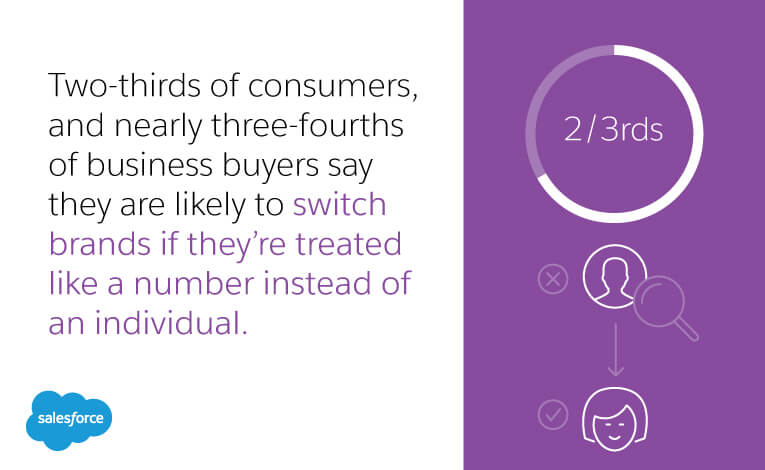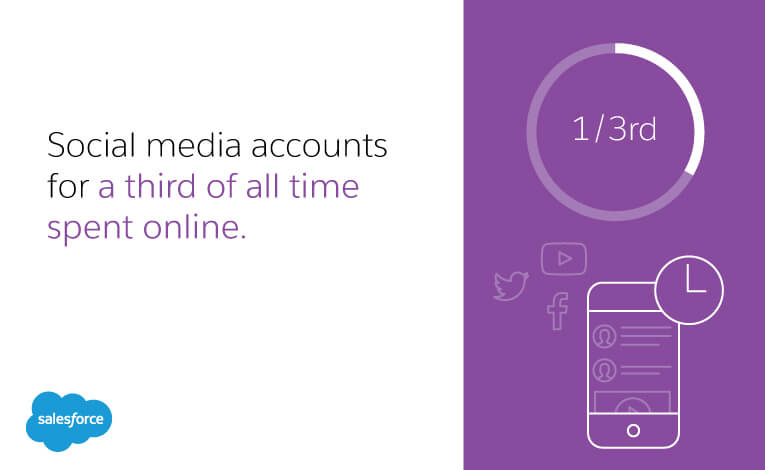Help Desk with Salesforce Service Cloud: Taking Customer Service Beyond the Sale

Once upon a time, getting effective customer technical support was easier said than done. If you were experiencing a problem with a product, you’re options were to seek help from the place of purchase, or contact the manufacturer directly. Unfortunately, not every shop owner — and certainly not every shop employee — has an in-depth knowledge of every product they sell. Manufacturers often weren’t any better; poorly trained service representatives, outsourced support centers, and convoluted message systems all stood between you and your solution.
Luckily things have changed. Now, thanks to the proliferation of digital technologies, and coupled with a rejuvenated focus on customer satisfaction, businesses are able to offer their clients real, effective support. Companies are realising that customer service extends beyond the brick-and-mortar confines of the shop, and continues long after a sale has been finalised. With the right digital tools, these companies can ensure that their clients stay satisfied, planting the seeds for future sales and ongoing brand advocacy.
Among these tools, IT help desk software is some of the most valuable.
What is IT Help Desk?
The IT help desk (sometimes simply called ‘helpdesk’), is a system designed to improve the user experience by providing information, tools, and ongoing support to the end user. These services differ from standard customer service and sales software, in that the main objective of an IT help desk is not to make sales or otherwise generate revenue (at least not directly). It exists to help clients, first and foremost.
A typical IT help desk serves as a point of contact for customers. Clients who contact the business with questions, concerns, problems, etc. are routed through the help desk. The software reviews the issue, and it then automatically sorts it based on a variety of metrics. Once sorted and categorised, each communication is assigned a ‘ticket,’ and relayed to a trained support agent. The agent then takes the necessary steps to resolve the issue, with his or her progress being tracked, logged, and relayed back to the system. Once the problem is solved, the system archives the ticket and contacts the client (if necessary).
Additionally, IT help desks may be used for other tasks, such as password reset, change requests, IT service catalog access, and even internal problem tracking and management.
One key advantage of IT help desk is that it gives even small businesses with limited service departments the power to effectively handle a growing customer base. As for larger organisations, IT help desk services are capable of handling thousands of daily communications across a variety of channels, ensuring that every client receives effective support and a quick resolution.
Support People, Not Numbers.
According to Gartner, 89% of businesses believe customer experience will be their main differentiator by 2018. On top of that, customer retention is growing in importance; a study by Bain & Company demonstrated that a customer-retention increase of as little as 5% results in an increase in profit of more than 25%. With this in mind, it’s becoming ever more obvious that businesses should be focusing more on not only providing a superior experience during the customer journey, but also supporting their clients well past the point of purchase.
Customers are people, not just potential dollar amounts. In fact, two-thirds of consumers, and nearly three-fourths of business buyers say they are likely to switch brands if they’re treated like a number instead of an individual. The right IT help desk software can give your clients a very visible reassurance that you want to see them succeed, and that you are willing to do your part to ensure that they do.

Salesforce Service Cloud Supports the People Who Support Your Business.
Much like conventional customer service, effective customer support is built on personal, one-on-one relationships. This means that it, in effect, falls under the larger umbrella of customer relationship management (CRM). When it comes to CRM, Salesforce is the industry leader. Salesforce has developed a full customer-service solution in the form of Salesforce Service Cloud, and with built-in help desk services, you’ll be able to provide post-sale client support that is as personalised as it is effective.
Salesforce Service Cloud is built on the award-winning Salesforce CRM platform. This means that it is completely cloud-based, and backed by the same high security standards that have made Salesforce the name to trust in data storage. Service Cloud is fully functional across all devices and operating systems, and is always kept up to date. Cloud-based CRM also allows for an unparalleled level of collaboration, giving every authorised user access to the same client and product data, updated in real time.
Service Cloud help desk functionality uses CRM data collection and analysis to provide your agents with detailed profiles of individual clients. This means a 360-degree view of each customer case, so your support representatives will always have all of the data they need to resolve issues in a personalised and relationship-centric way.
With an easy-to-understand, dashboard-like user interface, agents can see at a glance what tickets need to be addressed, and what next steps need to be taken. Built-in tools give your support representatives the assistance they need to resolve client issues quickly and effectively. Email-to-case, skills-based routing, macros, and milestone tracking improve agent productivity, and more keep customer concerns from becoming roadblocks to future business.
Service Cloud IT help desk solutions also allow you to automate a wide variety of tasks and service processes, freeing up more time for your agents to focus on the customers themselves. Through it all, advanced reporting features ensure that you always have a clear picture of the data and how it’s being used, and best to optimise your IT help desk service to fit the needs of your clients. And, for those customers who would rather find their own solutions, customer portals, FAQ pages, snap-in tools for apps and websites, and forum options are all built right in.
Finally, Salesforce’s help desk ticketing system, Desk.com, can gather and track tickets across various social media channels. With now many clients favouring social media as a customer support channel as it accounts for a third of all time spent online.. Desk.com ensures that you don’t end up overlooking the needs of your more social-media-minded clients.

Extend Customer Service Beyond the Sale.
The modern age has redefined the concept of customer support. Now, with the help of various digital and conventional communication channels, clients are discovering that superior customer service doesn’t have to end at the close of the sale. Of course, with this realisation comes an increased expectation of exceptional customer support across every available channel, and if you can’t fulfill that expectation with your clients, then they may not be your clients for long.
Salesforce Service Cloud and Desk.com give you the power to extend your customer service beyond the sale, providing your clients with unparalleled IT product support. After all, the customer journey shouldn’t end with the purchase; the right IT help desk software services give your clients the power to get the most out of what you have to offer, and that means the journey to brand advocacy starts with client support.




